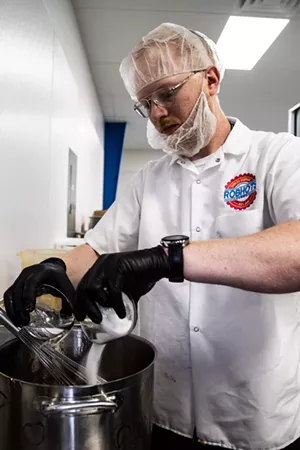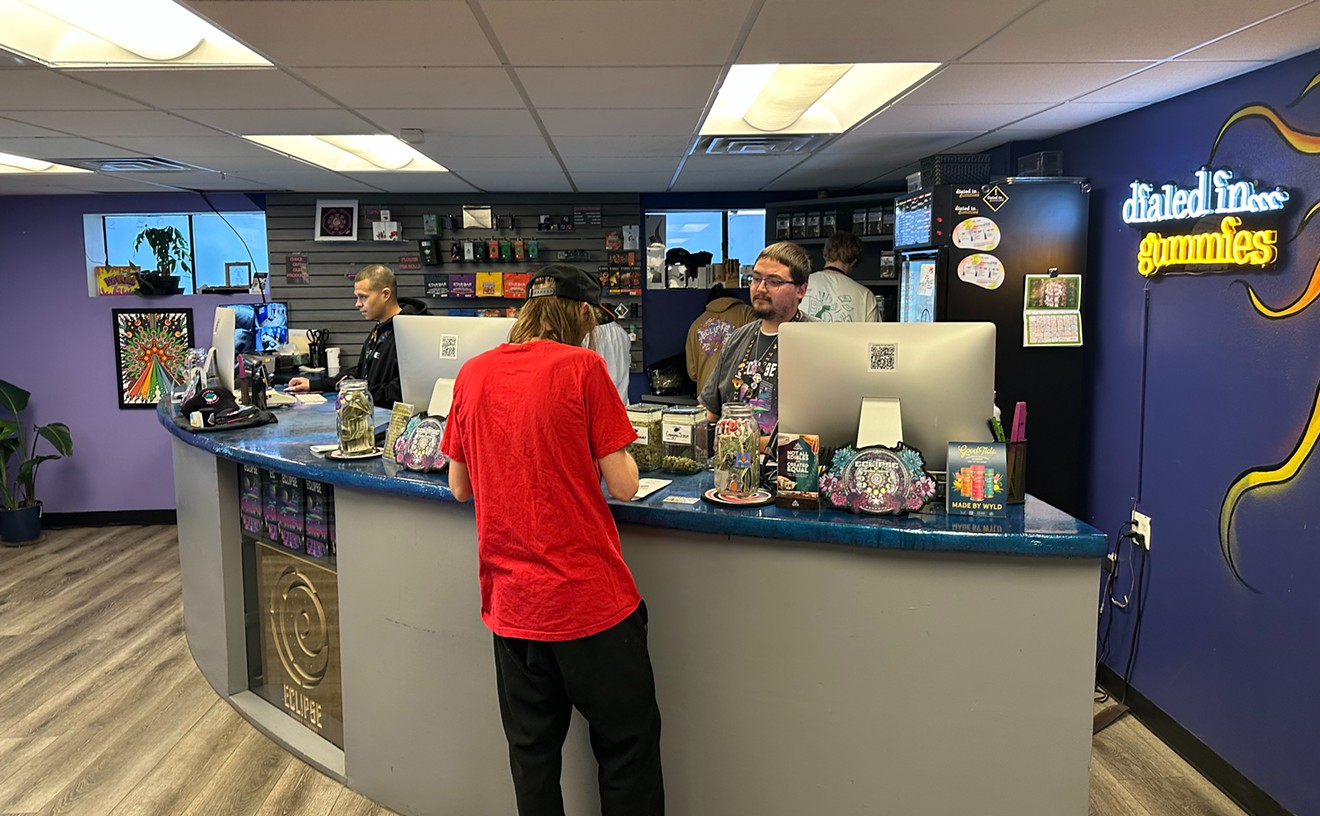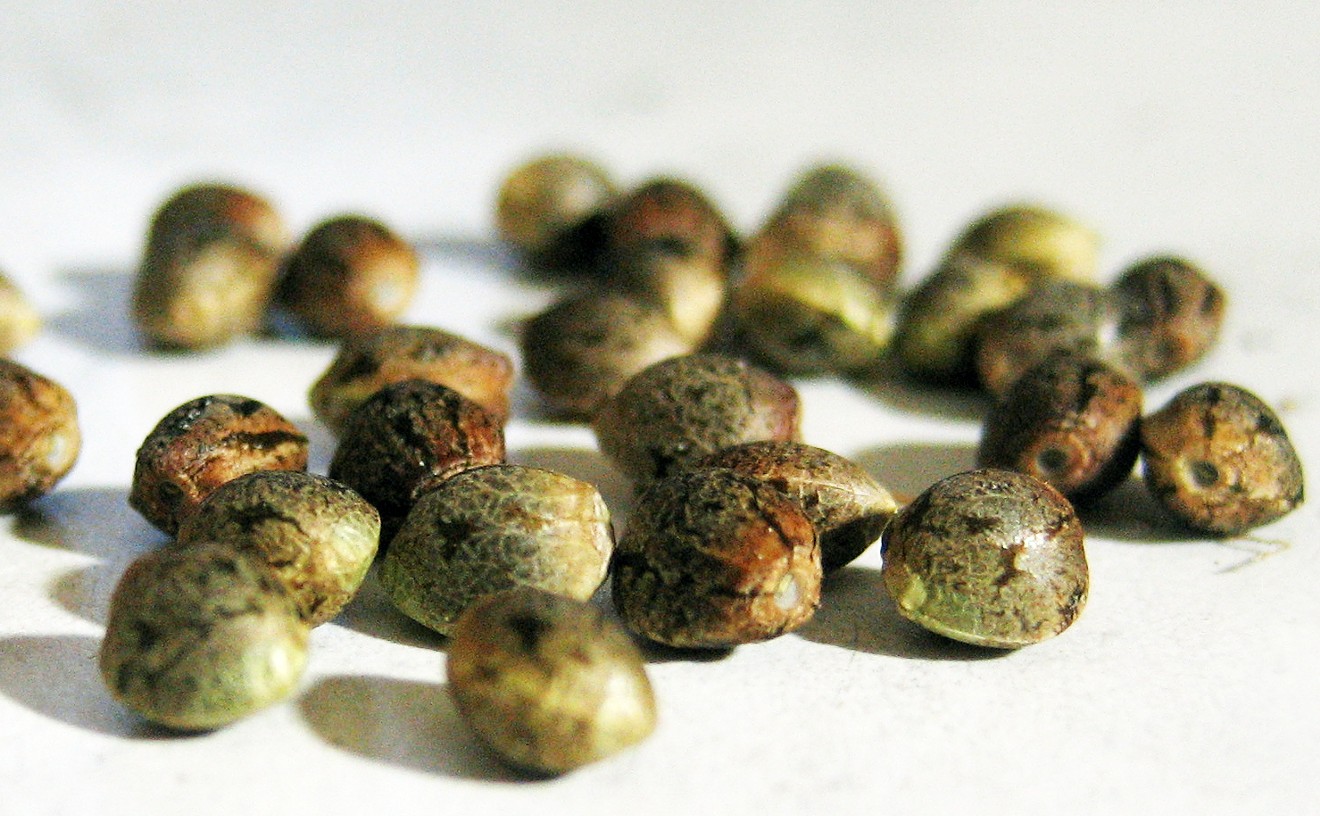Colorado-based edibles brand Robhots has been growing like a weed lately, but founder Zach Romey doesn't want to see the company he founded in 2014 stretched too thin.
A proudly small operation based in Pueblo West, Robhots has become one of Colorado's more recognizable infused-gummy manufacturers. Romey, a Missouri native, successfully expanded into his home state in 2020, where Robhots was the first edible sold at a dispensary, he says. Now they're sold in 80 percent of medical marijuana stores in Missouri.
Romey's gummies are now available in Maryland, as well, with two more states in the Southwest coming online in the near future. Robhots just signed a deal to launch in Nevada, where a fall debut is in the works, and the company has a verbal agreement for a similar partnership in Arizona, Romey says.
The roots of Robhots trace back to Romey's college apartment in Missouri, where he began experimenting with cannabis-infused food. He went legit after moving to Colorado in 2013 and secured a licensed production facility in Colorado Springs. In an effort to stand out, he originally made Robhots in robot-shaped gummy molds. A Colorado law passed in 2017 mandated that no edibles can be shaped like animals, people, fruit or shapes that could attract children, however, so the robot mold was abandoned for square and circular shapes.
"We were using butane hash oil [BHO] at the time, so that's why we spelled Robhots with an 'h,'" he explains. "We don't really have any of those connections anymore. I kind of wish we did."
Industry rule changes have thrown a few curveballs at Romey, but he keeps a tight-knit crew — never more than fourteen employees — to handle the speed bumps. The Robhots ownership and operation groups include two of his high school friends, and he credits his wife and Robhots marketing director, Ciera, with much of the company's expansion.
Licensing partnerships with established edibles manufacturers in other states have enabled Robhots to grow with a smaller staff. "You always see new edibles companies start and fizzle out. It's so hard to get off the ground and get going. Now you're seeing big money from outside get into it. They scoop up others and become multiple companies in one," he says. "There are different forms of being aggressive. We don't want to be predatory or disruptive. We just make good gummies."
Focusing on good pot candies can be difficult when cannabis extraction prices fluctuate as much as they have lately. According to Romey, the cost of THC distillate, the most common form of concentrate in commercial edibles, has gone from about $24 a gram to $2.50 since he started.
An oversupply of cannabis flower and concentrate has been part of a year-long dip in Colorado dispensary sales, and it's affected edibles manufacturers, too, Romey admits, but profits have remained steady for companies "that become more efficient in response."
Plummeting pot prices are just one of the gummy maker's issues at the moment, however. Shortly after Russia invaded Ukraine, Robhots was forced to find a new supplier of glucose syrup — a difficult task, as Ukraine is a leading global supplier of glucose syrup. "That's actually our biggest problem at the moment. We're still looking for new sources," Romey says.
Despite the supply-chain issues and a heavier travel schedule for Romey of late, Robhots has continued to release new products. The brand was an early adopter of rosin infusions, an emerging sector of edibles at dispensaries, and it debuted a rotating line of Gushers-inspired gummies with liquid-filled centers this summer.
While taking Robhots outside of Colorado has always been part of the plan, Pueblo West will remain the mothership operation.
"We expect federal legalization within the next five years, and we want to be established and well known by then," Romey concludes. "If it gets crazy and goes federally legal, maybe we have an East Coast HQ down the road, but that's way too far ahead. We really love being in Pueblo."
[
{
"name": "Air - MediumRectangle - Inline Content - Mobile Display Size",
"component": "12017618",
"insertPoint": "2",
"requiredCountToDisplay": "2"
},{
"name": "Editor Picks",
"component": "17242653",
"insertPoint": "4",
"requiredCountToDisplay": "1"
},{
"name": "Inline Links",
"component": "18838239",
"insertPoint": "8th",
"startingPoint": 8,
"requiredCountToDisplay": "7",
"maxInsertions": 25
},{
"name": "Air - MediumRectangle - Combo - Inline Content",
"component": "17261320",
"insertPoint": "8th",
"startingPoint": 8,
"requiredCountToDisplay": "7",
"maxInsertions": 25
},{
"name": "Inline Links",
"component": "18838239",
"insertPoint": "8th",
"startingPoint": 12,
"requiredCountToDisplay": "11",
"maxInsertions": 25
},{
"name": "Air - Leaderboard Tower - Combo - Inline Content",
"component": "17261321",
"insertPoint": "8th",
"startingPoint": 12,
"requiredCountToDisplay": "11",
"maxInsertions": 25
}
]













